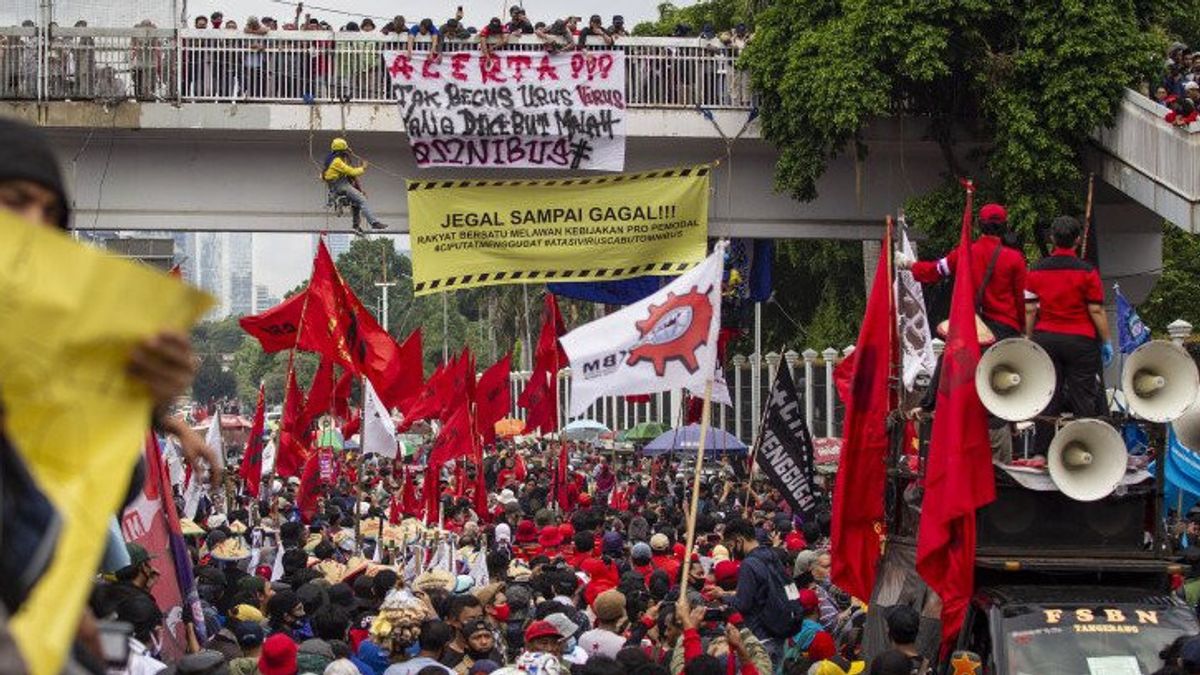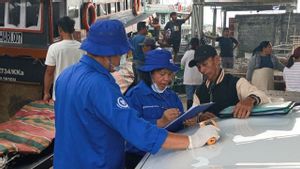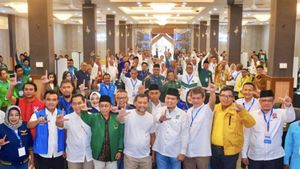It is still clear that the civil society's actions oppose the ratification of the Omnibus Law on Job Creation in 2020. Elements of students, laborers, and environmental activists throughout the region repeatedly protested even in pandemic conditions.
They consider the bill too easy for foreign investors to enter Indonesia. It endangers the political economy, especially in the field of employment, natural resource management (SDA) and the environment.
Examples related to natural and environmental governance. In Law Number 32 of 2009 concerning Environmental Protection and Management (PPLH) it is explained that what can participate in the preparation of Analysis on Environmental Impacts (AMDAL) is: affected communities; environmental observers; and/or those affected by all forms of decisions in the AMDAL process. Whereas in the Job Creation Law, AMDAL preparation can only be done by people who are directly affected.
Likewise related to employment. The head of the Ministry of Communication and Media of KSPI, Kahar S Cahyono, assessed that there were a number of articles that harmed the workers, including low wages, contract employees, outsourching, and severance pay values.
However, this resistance did not dampen the parliament's steps to continue to ratify it. The discussion of the bill was accelerated in 64 meetings, two working meetings, 56 meetings of the Panja, and six times of the Timus/Timsin Meeting. Until finally it was ratified on October 5, 2020. At least in just six months after the formation of the Working Committee by the Legislative Board of the DPR in mid-April 2020.
The chairman of the Indonesian Legal Aid Foundation (YLBHI) is of the opinion, With the stocking of the Job Creation Law, the package so that the oligarchy is more powerful in Indonesia is complete.
President Jokowi later officially made it Law Number 11 of 2020 concerning Job Creation (UU Cipta Kerja) on November 2, 2020.
The government still believes that the existence of the Job Creation Law will bring great benefits to the growth of the Indonesian economy. Encourages investment, accelerates economic transformation, aligns central-regional policies, provides ease of doing business, overcomes overlapping regulatory issues, and to eliminate sectoral egos.
"If there is still dissatisfaction with the Job Creation Law, please submit a judicial review to the Constitutional Court," said Jokowi.
Apparently, the Constitutional Court (MK) granted some of the formal test requests submitted by Migrant CARE, the West Sumatra Nagari Customary Meeting Coordinating Board, Minangkabau Customary Court, and Muchtar Said.
In Decision Number 91/PUU-XVIII/2020 which was read out on November 25, 2021, the Constitutional Panel of Judges confirmed that the Job Creation Law was formally flawed. The procedures for the formation of the Job Creation Law are not based on definite, standard, and standard methods and methods, as well as the systematics of the formation of laws.
There has been a change in the writing of several substances after the agreement with the DPR and the President. Also, it does not meet the principle of openness.
The facts of the trial prove that even though several meetings have been held with various community groups, the meeting has not discussed the academic text and the material for the amendment to the Job Creation Law. Thus, the people involved in the meeting did not know for sure what laws and regulations would be combined in the Job Creation Law.
Moreover, academic papers and the draft Job Creation Law cannot be easily accessed by the public. Whereas based on Article 96 paragraph (4) of Law 12/2011 access to laws is required to make it easier for the public to provide input verbally and/or in writing," Suhartoyo said reading out legal considerations.
As a result, the Constitutional Justice stated that the establishment of the Job Creation Law was contrary to the principles of forming laws and regulations.
"So, the Court is of the opinion that the process of forming Law 11/2020 is not fulfilling the provisions based on the 1945 Constitution, so it must be declared a formal defect," Suhartoyo said.
In addition, to avoid legal uncertainty and the greater impact caused, the Constitutional Justice also declared the Job Creation Act conditionally unconstitutional.
The government, said Chief Justice of the Constitutional Court Anwar Usman, must suspend all strategic and broad-impact actions or policies. It is also not allowed to issue new implementing regulations related to the Job Creation Law.
The Constitutional Court gave 2 years for improvement. Anwar emphasized, "If within a period of 2 years the legislators cannot complete the revision of the Job Creation Law, then the law or articles or material content of the law that has been revoked or amended by the Job Creation Law is declared valid again."
The government continues to look to enforce these rules. On December 30, 2022, President Jokowi issued Government Regulation in Lieu of Law (Perppu) Number 2 of 2022 concerning Job Creation. This, said Coordinating Minister for Economic Affairs Airlangga Hartarto, as an effort to consider urgent needs in anticipating global conditions, both related to the economy and geopolitical.
It is undeniable that the condition of world countries including Indonesia is currently under threat. Facing a global recession, rising inflation, and the threat of stagnation. Likewise from a geopolitical perspective, all countries face food, energy, financial, and climate change crises
That is why, the existence of Perppu is very important to be able to provide legal certainty, including for business actors.
"Moreover, next year we have set a deficit budget of less than 3 percent and this relies on investment. So next year our investment target will be IDR 1,200 trillion," said Airlangga in his official statement on December 30, 2022.
Related to that, according to Airlangga, President Jokowi has also coordinated with the Chairman of the Indonesian House of Representatives, Puan Maharani.
Constitutionally, Perppu is a legal product as stipulated in Article 22 of the 1945 Constitution. In the matter of coercive attachment, the president has the right to stipulate a Perppu while still paying attention to the role of the DPR.
However, according to the Deputy of Bappilu DPP for the Democratic Party, Kamhar Lakumani, the issuance of the Perppu was read as a trick. Kian emphasized that the government is only a servant of the interests of the oligarchy.
The basic criticism conveyed by the community in the process of establishing and the substance of the previous Job Creation Law was again neglected, starting from the involvement and public participation in the process of its formation to several substances contained in it as a public discourse. It did not exist and did not happen again. The government unilaterally immediately issued a Perppu, "said Kamhar to VOI, Monday (2/1).
Substances that are in the spotlight include cutting the authority of local governments in various sectors. Regional autonomy which is one of the mandates for reform is violated and the authority to be withdrawn to the center.
"This injures the mandate of reform. In the name of investment and economic development to justify all means, this is a characteristic of authoritarian rule. Once again, we remind Pak Jokowi not to become Malin of the Law on reforms," added Kamhar.
President Jokowi assesses that the pros and cons in every decision taken by the government are natural.
"But we can explain everything," said President Jokowi in the Tanah Abang area, Jakarta, Monday (2/1).
The English, Chinese, Japanese, Arabic, and French versions are automatically generated by the AI. So there may still be inaccuracies in translating, please always see Indonesian as our main language. (system supported by DigitalSiber.id)









